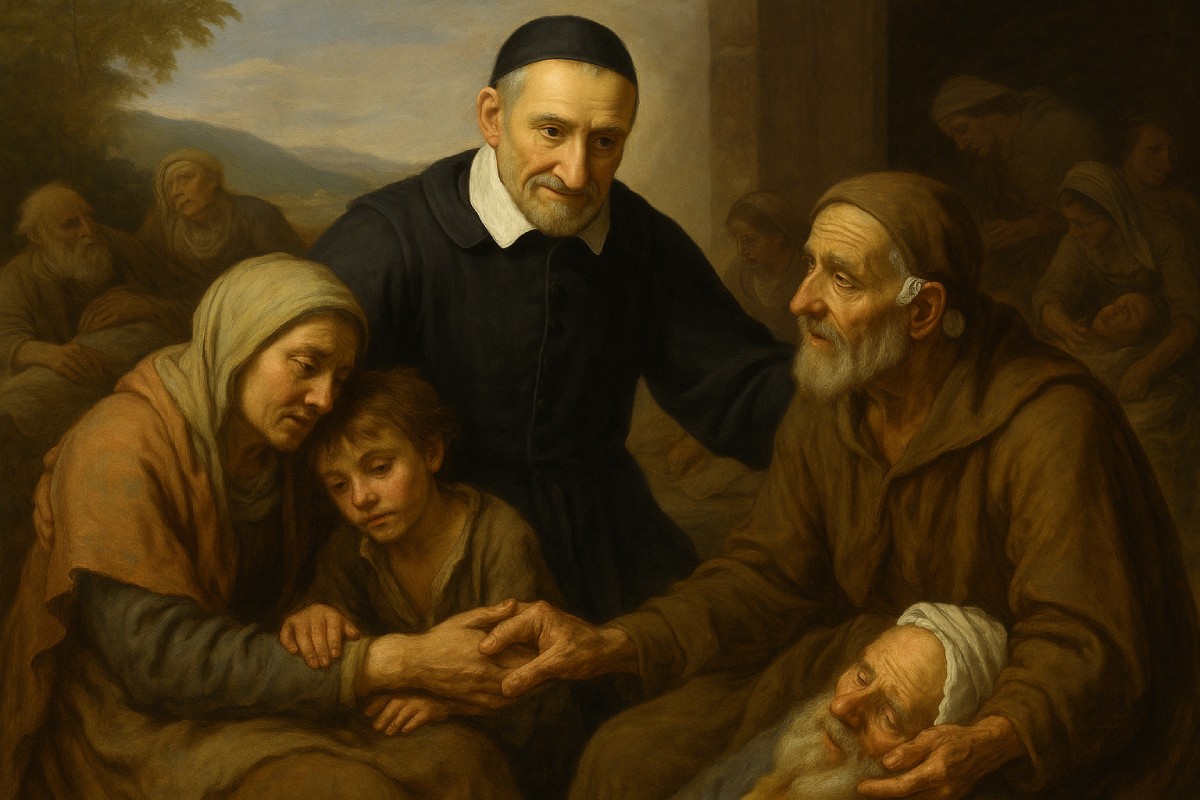St. Vincent de Paul was a man of charity, wisdom, and tireless service — a priest who saw Christ in the poor and reformed the Church by loving it more deeply. His life teaches that holiness is not found in comfort or prestige, but in self-giving love. Through his compassion and practical faith, he became one of the most beloved saints of mercy and reform in Christian history.
From Ambition to Conversion
Born in France in 1581, Vincent’s early years were marked by ambition. He dreamed of success and advancement in the Church. But a series of humbling experiences — including captivity, illness, and the suffering he witnessed among the poor — transformed his heart. His faith matured from self-interest into self-sacrifice. He began to see the face of Christ in every person in need.“Charity is the cement that binds communities to God and to one another.”With that conviction, he dedicated his life to serving both body and soul. He founded the Congregation of the Mission (Vincentians) and the Daughters of Charity with St. Louise de Marillac, organizing care for the sick, orphans, prisoners, and the forgotten. His practical wisdom and spiritual depth brought reform not only to the clergy but to society itself.
Love That Organizes Itself
For St. Vincent, charity was never sentimental — it was structured, disciplined, and enduring. He trained priests to preach and serve with integrity and established lay groups to sustain works of mercy. His genius was not merely in feeling compassion, but in building systems that made compassion last. He reminds us that love is not complete until it takes action.Why St. Vincent Still Matters Today
In a world weary of words, St. Vincent’s example speaks through action. He inspires:- Volunteers and caregivers serving the poor and sick
- Priests and leaders seeking renewal through service
- Those working for justice rooted in compassion
- Anyone desiring to find holiness in daily charity

